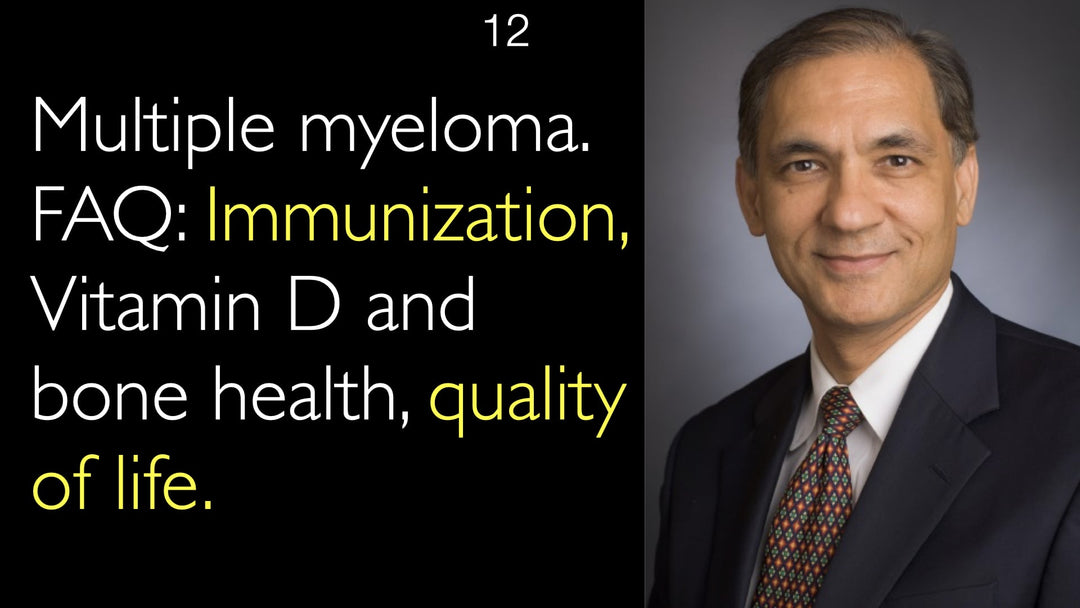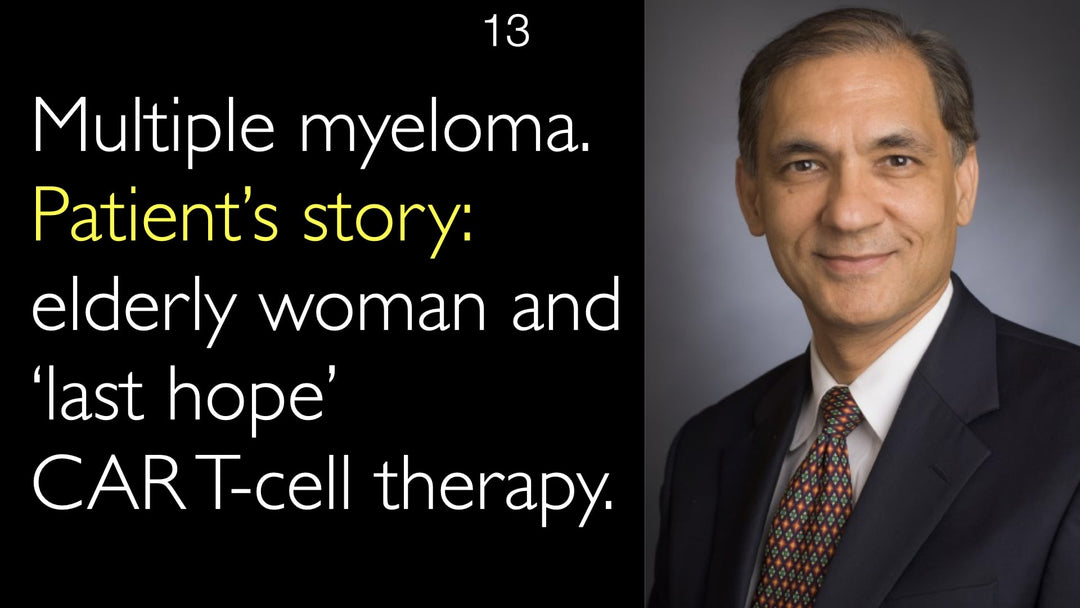Leading expert in mesothelioma, Dr. Dean Fennell, MD, explains the complex role of surgery in treating this aggressive cancer. He details how patient selection is critical, as some mesothelioma subtypes like sarcomatoid histology or those with CDKN2A mutations may not benefit. Dr. Dean Fennell, MD, discusses the controversial findings of past trials, such as the MARS study, which questioned surgical survival benefits. He highlights the ongoing MARS2 clinical trial, which aims to provide definitive, randomized evidence on whether surgery improves outcomes when combined with chemotherapy for early-stage disease.
Mesothelioma Surgery: Patient Selection, Clinical Trials, and Treatment Outcomes
Jump To Section
- Surgery in Mesothelioma Treatment
- Clinical Trial Controversies
- Identifying Poor Surgery Candidates
- The MARS2 Trial & Future Evidence
- Multimodality Therapy Approach
- Full Transcript
Surgery in Mesothelioma Treatment
Dr. Dean Fennell, MD, clarifies the role of surgical treatment for mesothelioma. He states that unlike in some lung cancers, surgery for mesothelioma is not considered a curative procedure. The median survival for mesothelioma patients who undergo surgery is typically around one year, with very few patients surviving beyond five years.
This reality forms the basis for a vigorous and ongoing debate within the oncology community about the true value of these radical operations.
Clinical Trial Controversies
The interview with Dr. Anton Titov, MD, delves into findings from key clinical trials. Dr. Dean Fennell, MD, specifically references the MARS trial, which surprisingly indicated that surgically treated mesothelioma patients had worse survival outcomes. He notes that these results raised important questions about potential selection bias and high dropout rates in such studies.
These controversial findings have made patient selection for mesothelioma surgery a critical and complex issue for oncologists.
Identifying Poor Surgery Candidates
Dr. Dean Fennell, MD, identifies specific patient subgroups for whom radical mesothelioma surgery is likely a poor choice. Patients with sarcomatoid mesothelioma histology often have aggressive, invasive disease that tends to recur quickly after an operation. Another group includes patients whose tumors harbor a CDKN2A mutation.
This genetic alteration increases cancer proliferation rates and is associated with significantly worse outcomes, making them less ideal candidates for extensive surgery.
The MARS2 Trial & Future Evidence
Dr. Dean Fennell, MD, discusses the pivotal MARS2 clinical trial designed to answer longstanding questions. This study randomizes patients with early-stage mesothelioma to receive either standard chemotherapy alone or chemotherapy followed by surgery. The trial aims to provide the first high-quality, randomized evidence on whether adding surgery to the treatment regimen actually improves patient survival.
Dr. Fennell awaits these results with enthusiasm, as they will offer objective data to guide future treatment decisions.
Multimodality Therapy Approach
The conversation with Dr. Anton Titov, MD, highlights the concept of multimodality therapy. Dr. Dean Fennell, MD, explains that the central question is whether interleaving surgery into a treatment schedule that includes chemotherapy can augment outcomes. He acknowledges that some patients do incredibly well after surgery, but this may be due to indolent disease biology rather than the operation itself.
The goal is to determine if surgery provides a true benefit above what can be achieved with systemic therapy alone for this challenging cancer.
Full Transcript
Dr. Dean Fennell, MD: Surgical treatment of mesothelioma. Some clinical trials, specifically the MARS trial, showed that surgically treated mesothelioma patients actually had worse survival. There was, of course, the question of dropout rates in those trials and possible selection bias.
How to select patients for surgical treatment correctly in mesothelioma? This is a really vigorous debate that's been running for a number of years.
The challenge with surgery for mesothelioma, unlike lung cancer, is that surgery is not in itself curative. There is a median survival for patients who have surgery in the order of a year or so, but certainly not extending beyond five years. We're not seeing mesothelioma patients cured.
Why do I say that? Because some patients with mesothelioma do well. Everybody who does operations in mesothelioma will be able to report these. Some patients do incredibly well after surgery.
That's because some mesothelioma patients, as I mentioned earlier, have genetics which may predispose them to very indolent disease. We certainly have within our medical oncology clinic patients who may not have opted for surgery, who have gone sometimes for years without ever requiring any intervention at all.
So it affects the question of whether surgery is beneficial. We already know that there is a subgroup of patients with mesothelioma in whom almost certainly surgery would be a bad thing, radical surgery. These are patients with sarcomatoid mesothelioma.
Because these cancers are aggressive, they're invasive, and they're likely to come back much quicker after an operation. Another group of patients with mesothelioma that we might want to consider as being perhaps less of a priority for surgery are patients with CDKN2A mutation.
These mutations tend to increase the proliferative rate of cancers. We see that these mesothelioma patients do a lot worse as well.
Dr. Dean Fennell, MD: But then, when you come to the very best patients, the obvious question will be, or argument will be this: well, if they're going to do well anyway, what additional benefit will we get from performing a radical operation? That, of course, has all of its attendant risks.
And that's really what MARS2 is trying to answer. We're taking patients who have so-called early disease, and those mesothelioma patients are then randomized to receive chemotherapy or surgery after having had what has been standard therapy for many years—chemotherapy.
Dr. Dean Fennell, MD: But the idea then is to see whether or not we can interleaf surgery into the multimodality therapy scheduled for these patients. Will that surgery lead to a better outcome for patients with mesothelioma?
Now, I don't know the results of that clinical trial. We won't know for some time.
Dr. Dean Fennell, MD: But it'll be an extremely important study because it will provide perhaps, for the first time, objective randomized evidence to say that surgery can augment the outcomes above and beyond what we can achieve with chemotherapy in mesothelioma. So I await that mesothelioma trial result with some enthusiasm.







